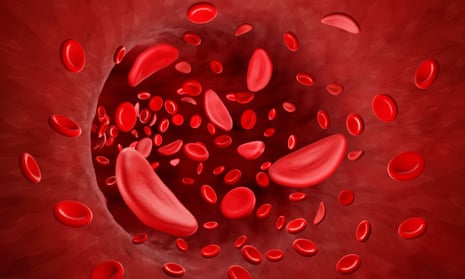In a landmark decision, the National Health Service (NHS) in England has approved the use of a groundbreaking gene-editing therapy, exagamglogene autotemcel (exa-cel), for patients suffering from severe sickle cell disease. This one-time treatment, priced at £1.65 million, offers hope for a potential cure to thousands affected by this debilitating condition.
Sickle cell disease, a genetic disorder affecting approximately 17,000 individuals in England, predominantly those of African or Caribbean descent, leads to the production of abnormally shaped red blood cells. These cells can cause severe pain, organ damage, and reduced life expectancy.
The newly approved therapy utilizes CRISPR gene-editing technology to modify the faulty gene responsible for the disease. By editing the patient's own stem cells, the treatment enables the production of healthy red blood cells, effectively addressing the root cause of the disorder. Clinical trials have demonstrated a "functional cure" in 96.6% of participants, significantly reducing or eliminating disease symptoms.
Initially, the National Institute for Health and Care Excellence (NICE) had reservations about the therapy due to limited effectiveness data. However, upon reevaluation, NICE has now endorsed the treatment for older children and adults with severe forms of sickle cell disease who lack a matched stem cell donor. Approximately 50 patients annually are expected to benefit from this innovative therapy.
Advocates and healthcare professionals have lauded this development as a significant advancement in addressing health inequalities. John James OBE, Chief Executive of the Sickle Cell Society, emphasized the transformative impact of the therapy, stating that it offers hope for a life free from the chronic pain and complications associated with the disease.
The NHS plans to administer the treatment at specialized centers in London, Manchester, and Birmingham, focusing on patients over 12 years old who meet the criteria for a stem cell transplant but lack a suitable donor. This approval marks a pivotal moment in the fight against sickle cell disease, offering a potential cure and a brighter future for those affected.


